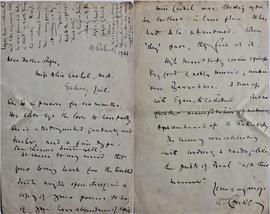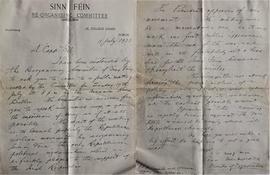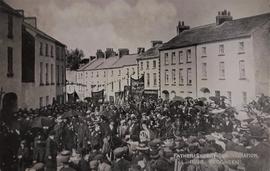- IE CA CP/3/2/2/2
- Documento
- 1912-1937
Parte de Irish Capuchin Archives
A file of loose letters to Fr. Henry Rope. Includes letters to Father Rope from Fr. Joseph Kelly (Bishop’s House, Birkenhead, refers to the Home Rule crisis and the ‘Orange Crusade’, 13 Nov. 1912), Patrick Langford Beazley (editor of ‘The Catholic Times’), Louis J. McQuilland, Patrick O’Riordan (Two Harbours, Minnesota), Fr. William Kane SJ, Fr. Thomas Dawson OMI (House of Retreat, Inchicore, Dublin), Dom Aidan OSB (The Abbey, Isle of Caldey, Tenby, South Wales), Fr. Finbar Ryan OP (editor of ‘The Irish Rosary’, St. Saviour’s Priory, Dominick Street, Dublin), Eoin MacNeill (Netley, Blackrock, County Dublin), Fr. J. Mulcahy (52 Harlesden Gardens, London), Fr. Daniel Hudson CSC (‘The Ave Maria / A Catholic Family Magazine’, Notre Dame, Indiana), John P. Boland (Catholic Truth Society, London), Fr. Declan OSB (Fort Augustus Abbey, Inverness, Scotland), James M. Rae (‘The Irish Catholic’, 55 Middle Abbey Street, Dublin), Rev. Sir John R. O’Connell (Mission House, Brondesbury Park, London), Fr. Patrick MacSwiney (Presbytery, Kinsale, County Cork), and Maureen Boland (40 St. George’s Square, London).



